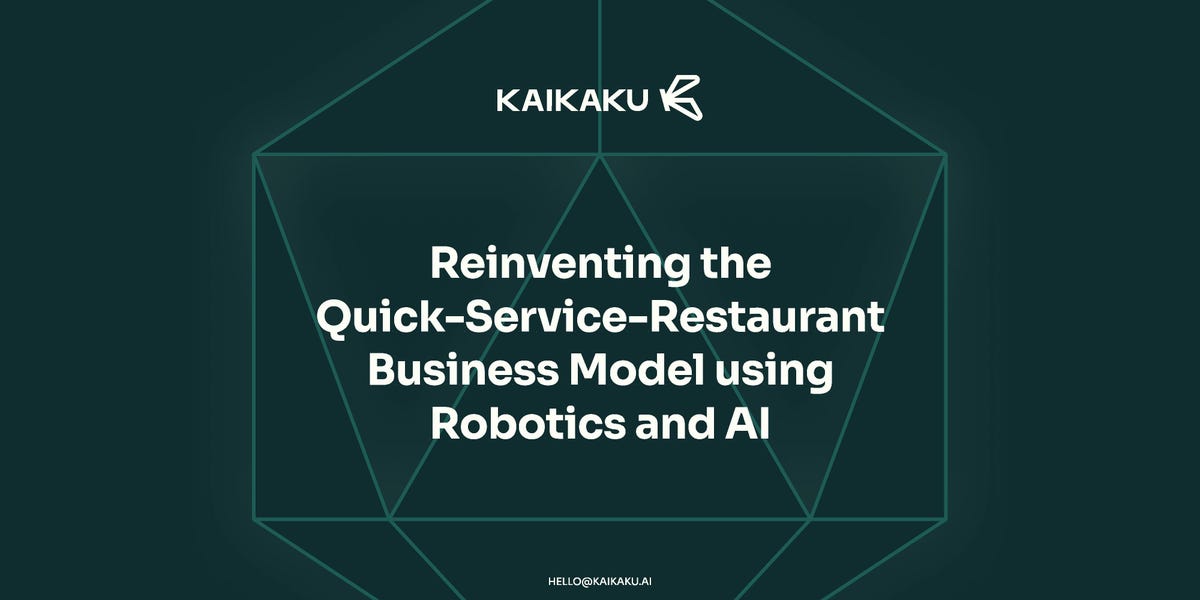A startup that has developed an automated robotics platform for restaurants has just secured $1.8 million.
London-based Kaikaku, which launched just 10 months ago, has also opened London’s first robotics-driven restaurant which is powered by its own tech.
“We still want to have waiters and chefs,” cofounder and CEO Josef Chen said. “But all the boring tasks are automated using our robots, so the chefs can genuinely focus on the customers.”
Kaikaku’s robotics and hardware technology spans a machine learning-powered inventory management system, custom-developed 3D printed food-safe materials, and a parallel dispensing robot that assembles dishes in 26 seconds, using food cartridges. Staff are given these cartridges, which hold up to 50 portions of food.
Chen said that his experience growing up in a family that ran a Chinese restaurant drove his desire to build the startup.
“I was forced to work in every corner of the restaurant, and I hated it,” he said. “What we want to do is automate assembly” — so that staffers can focus on cultivating human interactions with those who come into their restaurant.
The startup has patented various technologies, including its parallel dispensing method, and a 3D food printing mechanism.
As for its business model, it envisions using several revenue streams. Firstly, it has launched its own restaurant — a ‘common room’ — which sees its technology operate in action.
“The thesis we’re testing is that we can take a store as small as a café, but instead of selling £3 coffee, we can sell £10 assembled food bowls,” Chen told BI.
If that thesis works, it will license its technology to other restaurants, or franchise its store.
Amid growing interest in the AI and robotics space in the past year, Chen found that investors weren’t as ready to jump on their technology until this year.
“There are so many opportunities for AI and robotics in restaurants that teams are not yet capitalizing on,” he said, pointing to Kaikaku’s self-trained computer vision model which allows them to identify which food items are on the shelf, and have boundaries that alert staff about cross-contamination of allergens.
The round was led by HodlCo, with participation from Interface Capital, including the founders of Wunderlist and Blinkist, Charlie Songhurst, and BitPanda cofounder Paul Klanschek. The Kaikaku team has also participated in the round.
With the fresh funding, the team will also focus on hiring new staffers to develop its hardware capabilities.
Check out the 12-slide pitch deck used to secure the fresh funding.




